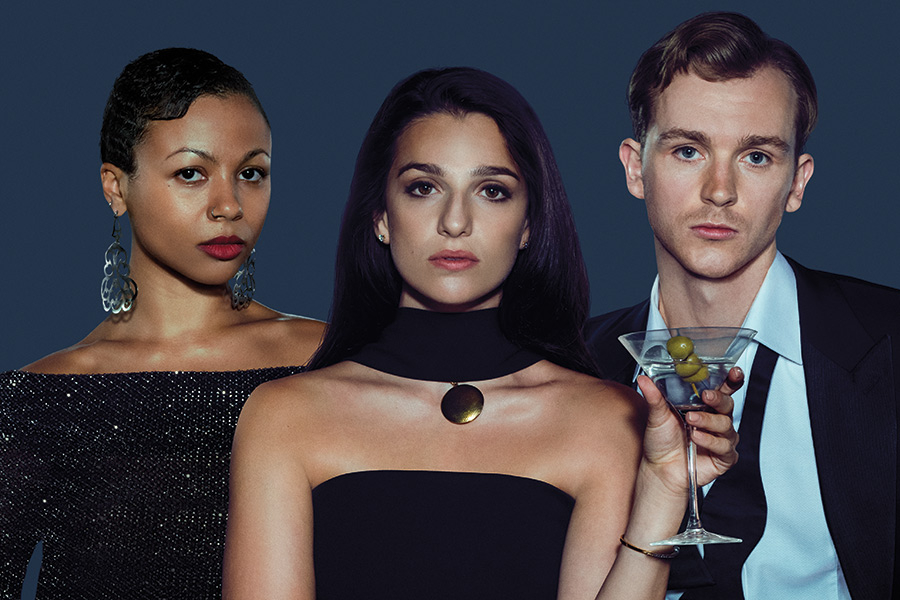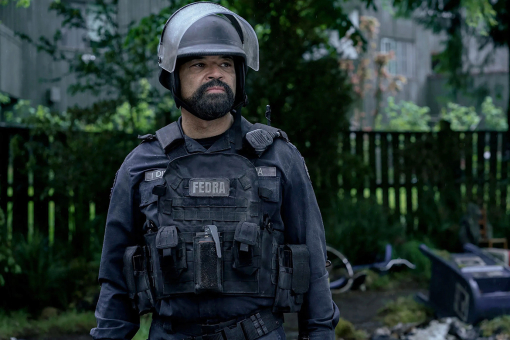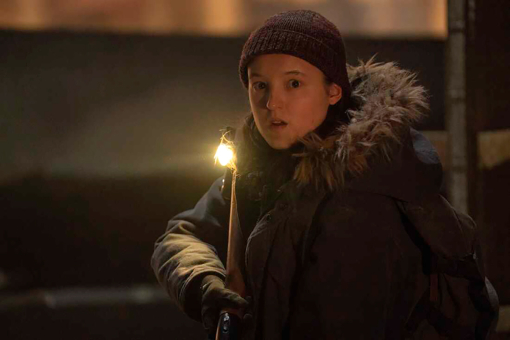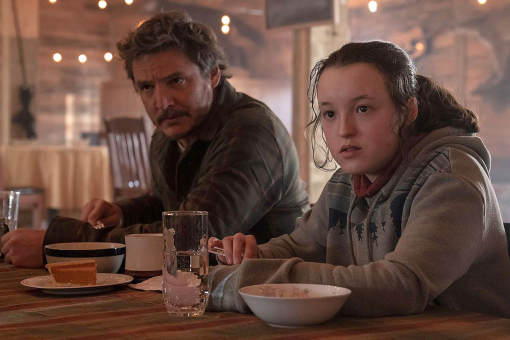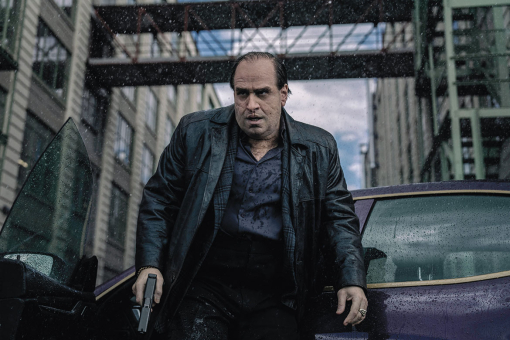If Industry were a stock pick, it’d be a hard “Buy.” The HBO high-finance series just released its third season, but compared to popular shows about dragons and restaurants and the undead, it remains one for the connoisseurs.
“It’s one of the most interesting pieces out there,” says Game of Thrones star Kit Harington, who joins the cast this season as Sir Henry Muck, a British aristocrat whose green-tech energy company is moving toward an IPO. “It’s stylish, it’s cool, and it knows what it is. This is a very smart show.”
Industry launched late in 2020, telling the story of life in an investment bank in London via the initiation rites of a group of young graduates fighting to avoid a six-month cull. They’d only just landed their prized jobs — what would they do to keep them? What wouldn’t they do?
“We wrote in a very narrow way in the first season,” says Konrad Kay, who created the show with his friend and writing partner, Mickey Down. “It was about five grads, with the only focus being on their lives. It didn’t comment on what they actually did for work. It just presented what they did and then allowed the audience to try and swim against the tide of financial jargon.”
Kay and Down are blithely dismissive of their early work, yet the first season of Industry was enough of a hit for HBO to order a second. Those who saw it loved it. It was a frenetic energy flash, as self-assured as a pumped-up young investment banker. The trading floor at the fictional Pierpoint & Co. was a snake pit, the line managers brutal, the pressure suffocating. But the money was huge. Harper (Myha’la), Yasmin (Marisa Abela) and Robert (Harry Lawtey) all subscribed to a “work hard, play hard” doctrine, fueled on adrenaline, vaulting ambition and Scarface-like quantities of white powder.
The show also provided a window for a group of young actors all starting out. Harington recognized something of his own path on Game of Thrones in the opportunities afforded to the fresh-faced cast. (David Jonsson and Nabhaan Rizwan, who played the other new grads, have gone on to roles in the film Rye Lane and the upcoming Netflix dark comedy Kaos, respectively.)
“When I watched it,” Harington says, “I responded in a positive way because it had a lot of young actors in their first jobs. I saw a bit of my own experience in that; I empathized with them as actors and as people.”
Myha’la, a California native who’s gone on to star in Netflix’s Black Mirror and Leave the World Behind, says that for her, it all comes back to Industry. “This show gave me my career. I am beyond grateful for the opportunity to have brought Harper to life in this way. In my six years out here in the world as a professional working actor, I have not yet read something as poignant, as worldly, as clever and as deeply, deeply rooted in humanity as Industry. I have yet to read anything else that compares with Mickey and Konrad’s writing.”
Industry launched with real bona fides: Before they were writers, Down and Kay started out as graduates at investment banks in London. Down left his job in mergers and acquisitions at a European bank in 2011, and Kay worked in equity sales until he was let go in 2013. They both insist they were very junior and very bad at their jobs (“I’m much more interested in finance now than I was when I was in finance,” Kay says), but their time in banking steeped them in the vernacular and gave them a raft of stories and contacts — all fertile ground for great drama. The first season of Industry was essentially a heightened version of Kay and Down’s own experiences as entry-level bankers. It’s safe to say they didn’t enjoy their time in finance.
“Season one,” Down says, “was venal characters behaving heinously within a really unfamiliar landscape, written by two people who had no idea what they were doing, with no story!”
Nonetheless, this world of moral relativism and copious acronyms created something that felt like nothing else — “snipey and punchy” is how Down describes it.
Yet Harington says that whatever their intentions, Kay and Down ended up doing what all the best dramas do. “What’s really clever about it is that although there is a lot of very complex business language, none of that really matters. It’s the characters. And that’s really good writing — you put in this ticking time bomb of high stakes, and you watch what it does to the characters. You don’t actually have to understand what they’re doing. That’s fascinating. And Mickey and Konrad have done that time and time again, brilliantly.”
In season three, Industry’s focus has widened. New characters have come to the fore, and more real-world events have been woven in, including the disastrous “mini budget” that short-lived Prime Minister Liz Truss launched in September 2022. Pierpoint is going all in on ESG (environmental, social and governance) businesses, but is this sudden interest in the environment driven by the usual profit motive? Harper has left Pierpoint and is back on the bottom rung at a startup fund, making coffee for her new boss, Petra (Sarah Goldberg, Barry).
Overall, Industry has expanded to become a study of the wider world of London finance and money in general, not just at Pierpoint.
One character who has grown in prominence is Eric Tao, the baseball bat–wielding desk manager and Pierpoint lifer, played with fierce stillness by Ken Leung. “They didn’t have to cast an Asian American in this show,” says the native New Yorker. “I remain moved by that — it’s been a dream. I really feel like Konrad, Mickey and I built Eric together. It’s been a very slow, gradual burn, and that’s rare in my experience, especially in a TV show.”
Eric has gone from a mentor-cum-nemesis for Harper to a man confronting his own mortality in an environment where deadwood gets burned. (“He’s saying ‘yes’ to everything that he used to say ‘no’ to,” is Leung’s summary.) Kay and Down say that seeing actors like Leung own and develop their parts has led them to follow these characters into the world outside the office.
“It’s a show that by its nature of being about young people entering a workplace can evolve quite significantly between seasons, as the characters mature and grow up,” Kay says.
For example, Abela’s Yasmin: Initially a doe-eyed ingenue from a moneyed family, it was generally thought she’d landed the job based on looks and connections. In season three, however, the layers are peeled back: Her father’s disappeared, the press intrudes on her life, she faces the prospect of being surrounded by money but having none and she’s still fascinated by Robert.
“To be honest,” Down says, “it was just throwing a lot of stuff at Marisa, because we think she’s a fantastic actress, and we wanted to test her.”
“When we met Yasmin in season one,” Abela says, “she was this very privileged, underqualified, intensely neurotic young woman who was just trying to feel successful in this world. Yasmin’s downfall comes in the need for validation. And she looks for that everywhere, whether it’s with a superior at work — so, Eric, in this season — or through her friendships with Harper and with Rob. It gets her into relationships like the one with Henry [Harington] that she probably shouldn’t be in. But it all comes back to her father — that’s a relationship that is objectively toxic and not healthy.”
Just as Kay and Down hope, it all gives Abela a lot to work with, and she excels — in her time on Industry she has gone from being an unknown to leading a feature film (Sam Taylor-Johnson’s recent Amy Winehouse biopic, Back to Black).
“This show means the most to me of any professional job I’ve had,” Abela says. “It’s incredibly personal to me, and I’m really proud of it. I got this job before I graduated from drama school, and I feel so lucky that Industry was the first thing I did. The most fortunate thing that’s happened to me in my career was that the people who chose to take a chance on me were Mickey and Konrad.”
Lawtey’s Robert is the working-class lad who never quite fits into the hallowed halls of Pierpoint. Lawtey points out that everybody on the production has grown into their roles. “When this all started, Mickey and Konrad were first-timers in the way that we were — we as a cast were very inexperienced, fresh out of drama school — so we were all imposters. Now they’re established writers, with the credentials and the CV to support that. That has given them a sense of freedom to go in different directions. In this season there are moments that are a bit more abstract, a bit more lyrical. They’re taking a big swing — and that’s exciting to be a part of.”
Harper, Eric, Yasmin, Robert — not one of them ever quite feels like they belong at Pierpoint. Industry is a show of in-groups and out-groups, cliques and coteries. Money is supposed to be a meritocracy, but Industry shows it is anything but. Class, race and gender are always present and always weaponized.
Sagar Radia plays Rishi, the head trader at Pierpoint and the archetype of the blowhard banker … except for his skin color. This year, Rishi, previously a one-liner delivery system, gets a whole episode practically to himself. It explores whether a man of South Asian extraction can ever really fit in — to the world of banking and to the world of the British aristocracy, into which he has married.
“The way he fits in at work is by being the loudest guy in the room, but is that covering a layer of insecurity?” Radia says. “Then he has this other insecurity in his home life — and I have to say that, culturally, that exists for many people from a minority background. You’re not sure if you’re one or the other, whether it’s at work or in personal situations. Despite there not being overt racism, there are always subtle hints. It’s all part of an ‘othering’ that exists.”
Much of that othering is expressed through the kind of quiet codification that contours the show. In Industry, it’s about knowing the buzzwords, intuiting the correct ways to behave and following a dress code that no one explains to you until you get it wrong.
“There are expectations in the City,” says costume designer Laura Smith, speaking of London’s central business district. “There’s an unspoken code — but then sometimes it is spoken.”
In season one, Robert was mocked for his cheap suits and had the breast pockets torn off his dress shirts. Bankers, Smith says, are supposedly “gentlemen” who put their pens on their desks and therefore have no need to carry them around.
“Robert, he had a hell of a time with the suits and the way that people read his look and how they assessed him,” she says. “He seemed to be the victim of that most of the time; it’s overt bullying.”
This season, Industry’s dress code is moving into business casual to reflect what’s happened in the business world over the last few years, Smith says. “Since lockdown the uniform has developed from being suit-heavy toward being more merch-heavy. They love their branded vests and sweats.”
With its acres of cashmere and monotone dressing, the Industry wardrobe offers another insight to the tastes of the 1%. It might even remind you of HBO’s other recent C-suite hit.
“Succession was HBO’s most successful show since Game of Thrones, wasn’t it?” Kay asks, in response to a recent Vulture article suggesting that those missing Jesse Armstrong’s family saga might want to try Industry. “So, it’s very flattering. Particularly as Peep Show [the 2003–15 sitcom Armstrong cocreated with Sam Bain and Andrew O’Connor] was enormously influential on mine and Mickey’s writing and our friendship. When we first met at Oxford, all we used to do was eat sandwiches and watch Peep Show together.”
Succession’s end has left a gap in the market for those who enjoy PJs (private jets), waspish repartee and corporate warfare. “It feels like there’s an opportunity for the show as well, in terms of the overall TV landscape and the timing of it, and the movement to 9 p.m. on Sundays,” Kay says. “And getting someone like Kit in the show obviously is a huge coup for us as well.”
It all leaves Industry in an intriguing place: a show on the rise that’s suddenly like nothing else out there. Time to get on board, as Eric might say, prowling the floor with his baseball bat: “Don’t miss the flow.”
This article originally appeared in emmy magazine, issue #10, 2024, under the title Rising Interest



